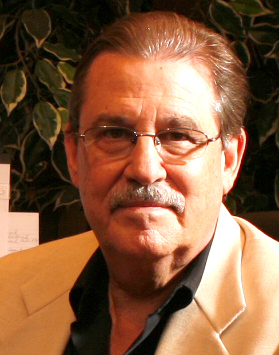|
VOICE ACTING Striving For The Perfect Voice Over Take Will Drive You Nuts - Edit Instead August 24, 2015  By Jim Conlan By Jim ConlanVoice Talent, Coach & Producer What do you mean by "Perfect”? There’s probably no group more devoted to perfection than artists – among whom I include voice talent. We’re constantly wondering if we did our best. In fact, back in the day it was an oft-heard comment that "I did my best take in the car going home.” But what is perfection to you?
RECIPE FOR DISASTER I have worked with a number of directors who really believe that if you record enough takes, eventually you’ll get it perfect. What a recipe for disaster! It hardly ever works, and it often drives the voice talent nuts. More enlightened directors know that it’s the result you’re after, not how you get there. And since these days you’ll probably be your own director, it has become easier to focus on the result. RECORDED, NOT LIVE After all, this is voice over. That means it’s recorded, not live; it’s audio, not video. So there’s really no reason to get it all perfect in one magical take. Let’s say that after two or three takes you feel like you mostly got it. Maybe there were a couple of glitches - a line or two you didn’t quite like, or it came in a bit long. But that take had something special about it. At this point you don’t really need to try for another take, hoping that the magic remains while you iron out the glitches. LISTEN, THEN EDIT Instead, I suggest you do two things. First, listen to other takes to see if maybe the glitches in question didn’t appear in them; if so, a little cutting and pasting might give you a complete, seamless take. Second, if you don’t find what you need, do pick-ups and paste them in place. If you’re good at matching tone, pace, level, etc. – and if you’re adept at seamless editing – you may end up with a "perfect” read. It’s something you, the narrator, created with you, the editor. At that point, of course, how you define "perfect” is between you and your client. But at least you didn’t have to beat yourself senseless to get there. ------------------ ABOUT JIM Jim Conlan is a voice actor and narrator with a wide variety of fiction and non-fiction titles available on Audible and in bookstores. Some of his favorites include Moby-Dick, Island Life, by William Meikle, and To Timbuktu for a Haircut, by Rick Antonson. Email: provomaster@yahoo.com Web: www.provomaster.com |
|
|
On Michael Langsner's Voice-Over Roadmap Podcast
Get your bi-weekly dose here ... all things VO!
Email alerts to new VoiceOverXtra articles
For essential voice-over business strategies
As of the NEW website launch, 03/22/2012


.png)






.gif)
But there's balance between editing and just doing it over again. A 60 second read takes you 60 seconds to repeat and nail, where slicing and dicing between several different takes to find the best bits and pieces can take 10-20 minutes. Sometimes it's better to just redo it from the top.
Good advice.
On the other foot, there have been times (especially when there are more than two representing the client listening in) when I did it over and over. I think that we all know it will begin to get stale after a bit.
I found a little trick that seemed to work when the client and or director don't really know what they want...After a particular good take...to me, I will announce right after I finish the last line, "You can print that sonofabitch." It usually works.